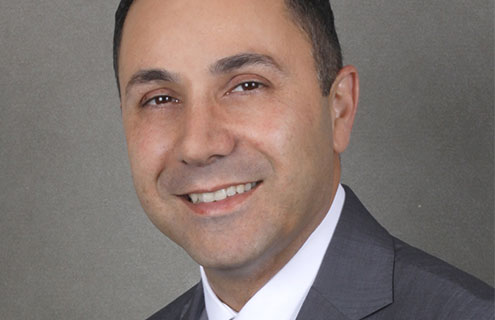How would you summarise the challenges that this sector is currently facing?
Regulators and investors continue to drive change around corporate governance, transparency and risk management. Although many of these changes have been good for the industry, and have provided greater protection for investors, they have also had a direct impact on operating margins and helped drive infrastructure change costs for custodians and asset servicing firms. Add to this the normal pressures of demonstrating a healthy return on investment to shareholders, increased competition such as that from central securities depositories (CSDs) and international CSDs (ICSDs), and a backdrop of historic low interest rates, and market participants have been forced to look long and hard at their business models and to examine ways to remain competitive.
In consultation with our custodian and asset servicing clients, Broadridge has taken a collaborative approach in listening to their changing needs. Proxy management is an area where we have observed the greatest need—where comprehensive meeting results, vote confirmation and transparency reporting solutions have been recurring themes in our market dialogue.
What are the evolving needs in governance risk?
There is a very discernible increase in firms strategising to reduce environmental, social and governance risk, collectively referenced as ESG. While efficient proxy processing has always been an effective mitigation vehicle for governance risk, the introduction of national corporate governance codes, stewardship practices and the heightened focus on executive remuneration have led to a significantly higher degree of scrutiny.
Institutional investors are seeking deeper levels of analysis relating to portfolio governance risk, for example by identifying how a company’s executive pay and governance practices differ from peers and are aligned with performance. From the perspective of corporate issuers, there is a reciprocal desire to engage more proactively with investors, especially those that may be more vocal on executive pay and governance matters, with a goal of attaining higher levels of buy-in and ultimately attracting increased investment.
Corporate governance analytics is an area of growth and investment for Broadridge, most recently through the launch of our Broadridge DirectorInsight solution, which offers objective intelligence for improved investment decisions and stewardship, while enabling corporations to gain greater insight into pay, governance and performance.
How can custodians address proxy-related issues?
Robust corporate governance practices should be in place in order to attract investment and maintain investor confidence. This means demonstrating effective stewardship, performance and peer group alignment, and providing shareholders with a mechanism to express support for decisions. In today’s world, voting at general meetings is where good issuer and investor corporate governance come together. For this reason, institutional investors are turning to their custodians to provide accurate and timely voting notifications, extended voting windows, and better reporting in regards to valid receipt of voting intentions and meeting outcomes.
Custodians and asset servicing firms are increasingly partnering with specialist providers for innovative, fully managed and mutualised cost-effective solutions.
For many of the leading global custodians, we already provide a proven capability for global proxy management to support the vote processing in over 100 markets.
A shared service model that provides an end-to-end proxy solution covering agenda sourcing and translation, distribution of meeting announcements and vote execution at a local market level would really help custodians tackle some of the complexities that exist within their markets today.
What are the benefits of an improved local custody model for the proxy process?
If all market participants embraced a common, local market, shared service model, it would support all constituents—investors, issuers, global and local custodians—in meeting their common objectives of efficiency, accountability, transparency and reporting.
The added benefits for a common market model for proxy could include a reduction in missed entitlements and less time spent on reconciliations and manual processes. This not only leads to greater timeliness and accuracy, but also provides investors with a broader window in which to conduct pre-meeting research and submit votes.
Because proxy is a highly specialised area, it is difficult for custodians to go it alone. Broadridge is a big advocate of a shared service model for local and global market proxy processing, where economies of scale and expertise can help custodians achieve operating efficiencies, provide greater risk management and improve overall vote transparency for investors.
← Previous interview
SWIFT
Juliette Kennel
Next interview →
INDATA
David Csiki
 Image: Shutterstock
Image: Shutterstock 